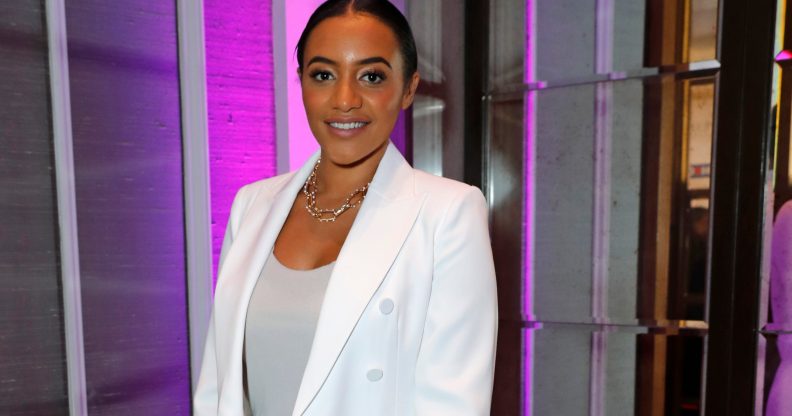Five famous footballers are gay, says niece of the late Justin Fashanu, Britain’s first – and only – out gay footballer

Amal Fashanu, pictured here in 2019, told The Sun that at least five famous footballers are secretly gay. (David M. Benett/Dave Benett/Getty Images)
At least five famous footballers in the UK are gay and in the closet, according to the niece of Justin Fashanu – the UK’s first, and only, out gay footballer who died by suicide in 1998.
The five men are being supported by the Justin Fashanu Foundation, which is run by Amal, Justin Fashanu’s niece.
She told The Sun that she thinks the UK will see a gay footballer come out in the next five years, but that the fear of being first was tormenting the closeted players.
“No one wants to be the first,” Amal said.
“In their minds these guys are trapped, ashamed. They think society won’t accept it so instead they live their lives in secret.
“It’s sad that this has to happen. But they would be a trailblazer.”
First out gay player in British football died by suicide.
Justin Fashanu came out as gay in 1990 – but died by suicide in 1998 after years of homophobic abuse and tabloid harassment.
As well as struggling for public acceptance, the Norwich City player also faced rejection from his family — with his brother John later admitting to having unsuccessfully attempted to coerce him into staying in the closet.
The legacy of his treatment continues to hang over football. There are still no openly gay male players in the top tiers of the sport in the UK, and persistent reports suggest that major stars feel terrified to come out while their careers are active.
But Amal told The Sun that she thinks the media would treat a gay footballer differently now and that she doesn’t think there would be a problem with fans.
“One in 10 men are gay so the idea there aren’t lots playing football doesn’t add up,” she added.
Justin Fashanu was paid by his brother not to come out as gay.
Amal’s dad, John Fashanu, recently admitted that he felt “horrible” about paying his late brother not to come out in the 90s.
In an interview on Good Morning Britain, he said he gave his brother the money to stop him from “embarrassing” their family.
He said football was very different in the 1990s, and that male footballers had to portray an image of being “masculine and heterosexual” in order to succeed.
An openly gay player would have “rocked the boat”, he said, explaining why he made a significant payment to his brother to try to keep him in the closet.
“You have to understand this was decades ago and people were thinking differently,” he said.
“He was the first Black one million pound footballer, but he was gay. We could just not accept that at all as a family, the whole family,” he continued.
Speaking about the hounding his brother went through, Fashanu explained: “Unfortunately, he then decided he couldn’t go on. God rest his soul, he [died by] suicide, he decided that was the best way out for himself.”
Asked if he still feels guilt over his brother’s death, he added: “Every day. There’s not a time when he doesn’t come into my mind.”
Newspaper hounding of gay men.
While Amal and her father believe that it would be different for a gay footballer to come out now than it was for Justin Fashanu in the 90s, the media’s negative treatment of gay men continues to this day.
Last year, Gareth Thomas – the former Welsh Rugby captain who was the first rugby player to come out, in 2009 – was forced to come out as HIV positive after allegedly being blackmailed by a newspaper.
And soon after television presenter Phillip Schofield came out as gay in February this year, rumours began swirling online that – despite Schofield claiming he’d decided on the timing himself – he’d allegedly been forced to come out when he did because he was being blackmailed by a tabloid journalist.

